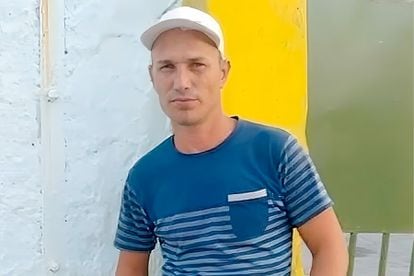
Eamon Gilmore, the EU Special Representative for Human Rights, arrived in Havana on Thursday, just one day after a wake was held for Luis Barrios, a 37-year-old political prisoner who died this week after being transferred from jail to hospital due to advanced bronchopneumonia.
Gilmore announced his trip on Thursday on his X account, saying he would meet with members of the Cuban government, institutions, and civil society. “I will be discussing a wide range of issues,” he wrote without elaborating further. Between Thursday and Friday, the official will co-chair the EU-Cuba Human Rights Dialogue, as established in 2017 in the EU-Cuba Political Dialogue and Cooperation Agreement. Gilmore’s visit to the island had been announced in May by the High Representative for European Foreign Affairs, Josep Borrell.
Various Cuban organizations have said they expect a gesture from Gilmore. They have urged him to visit hospitals, meet with relatives of prisoners and even go personally to see prisons. The visit comes at a time when Cuba is experiencing a historic migratory exodus that has reached 400,000 people in the last two years, food shortages that have even been acknowledged by the authorities, a health crisis in a country that prides itself on being “a medical powerhouse” and constant complaints of human rights violations.
Investigating Barrios’ death
Gilmore’s visit is also taking place amid shock over the death of Luis Barrios, who was arrested during the massive and unprecedented protests that took place throughout Cuba on July 11, 2021, and sentenced by the Municipal Court of Arroyo Naranjo, in Havana, to nine years behind bars for the alleged crime of public disorder and assault, the same charges that the government has reserved for some of the more than 1,000 people jailed after the demonstrations.

In the afternoon of November 19, Barrios, who has a six-year-old child, died at La Covadonga hospital. Since August he had been suffering from respiratory problems. Although the Covadonga medical staff informed authorities that it was necessary for Barrios to remain admitted in hospital, they decided to return him to prison because “they did not have fuel to guarantee permanent surveillance of the political prisoner” as made public by the Cuban Observatory of Human Rights (OCDH). Last Saturday he underwent urgent surgery, but died due to “respiratory complications.”
Cuba ranks fifth for the highest prison population rate in the world, according to a report by the Institute for Crime & Justice Policy Research, and keeps more than 1,500 people imprisoned for political reasons. Since 2022, 20 cases of people dying in state custody have been registered in Cuba, according to lawyer Laritza Diversent, director of the legal advisory group Cubalex. Barrios is the first political prisoner to die in the last two years. Aisel Roque Rivero, 18, a participant in the July 11 protests, died in police custody in February. According to the official version, he committed suicide, but his relatives insist that he died from a beating.
The Inter-American Commission on Human Rights (IACHR) has demanded that the government investigate Barrios’ death “quickly and impartially,” while the United States Embassy in Cuba has called on the government to respect human rights. “No one should be imprisoned in Cuba or anywhere for publicly expressing their political opinions,” they added in a statement published on X.
Diversent explains that, in the event that a person deprived of their liberty should die in the custody of the state, the latter “must open an investigation.” But she believes that, since there are no independent institutions in Cuba, it is likely that this will not happen and that the family will not have the possibility to demand justice beyond filing petitions through international bodies that the island’s government usually ignores.
While the Cuban government continues to remain silent, various civil organizations are holding the Cuban State responsible for Barrios’ death. Yaxys Cires, director of strategies at the OCDH, says that on several occasions Barrios’ family communicated to prison authorities their concern about the obvious deterioration of his health, “but the authorities did not pay attention to these complaints, resulting in his death.”
“The denial of medical assistance for months to a person in a serious state of ill health, and held in prison by a state, is the responsibility of the state,” says Javier Larrondo, director of the NGO Prisoners Defenders. “He acquired the disease in prison and was not treated at the express wish of the authorities.”
For the activist Camila Rodríguez, coordinator of the group Justicia 11J, which has recorded 964 incidents associated with political prisoners in the protests, most of them related to the use of harassment and repressive practices, state officials “use health as a coercive mechanism to silence opponents,” something that Diversent agrees with. “The denial of medical care as a method of torture is something we have been observing,” she says. Her organization has also documented lack of drinking water and poor hygiene conditions in the country’s prison institutions, human rights violations that often remain invisible.
Cuban organizations and activists have demanded access to Cuban prisons by international organizations, but since the late 1980s, not one international organization has been inside a Cuban penitentiary. For this reason, civil groups consider it urgent that the European official learn about the situation of political prisoners during his visit, some of whom are serving sentences of up to 30 years.
Sign up for our weekly newsletter to get more English-language news coverage from EL PAÍS USA Edition
This post was originally published on this site be sure to check out more of their content.






